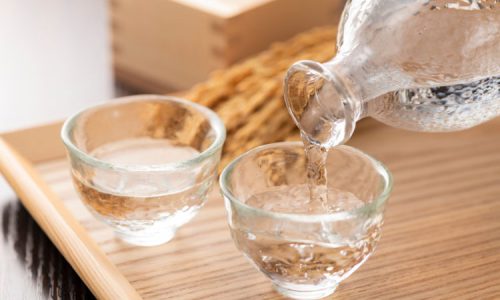
Awamori is the oldest distilled spirit in Japan and one of the world’s most unique white liquors made from rice. Hailing from the Okinawan islands, Awamori is a white liquor, and when aged for a long time develops a mellow aroma and distinct smoothness. Aged Awamori is called “kusu” (古酒)in the Okinawan language (which means old sake in Japanese).
Awamori, which benefits from Okinawa’s climate and is filled with the wisdom of its ancestors, is an irreplaceable treasure for the Okinawan people, and kuusu is also a symbol of peace, as it requires a long period of tranquility to mature. Ryuku, which refers to the Ryuku kingdom, under which Okinawa once was ruled, is often used to clearly identify Okinawan Awamori.
How Awamori is defined, by Japanese Liquor Laws
In order to label, manufacture and sell Awamori in Japan, the following conditions and characteristics must be met by law and industry regulations.
-
- It must contain Alcohol between 1 and 45 percent.*
-
- It must be distilled using a single distillation process.**
-
- It must made using black yeast mold.**
-
- It must only contain rice and water as raw materials.***
-
- It must only use rice mash mixed with koji.
-
- Color cannot be too dark. (must be able to distinguish it from whiskey)****
-
- “Ryuku Awamori” (translated as Okinawan Awamori), must be produced on the Okinawan islands.
*(Article 2 of the Liquor Tax Law, Article 3 of the same law)
**(Article 2, Article 3 of the Sake Tax Law)
***(Article 2 of the Fair Competition Code)
****When stored in a wooden container, the absorbance at 430 nanometers (nm) and 480 nanometers (nm) shall be measured respectively, and the coloration shall be 0.080 or less for both. (Article 50 of the Liquor Tax Law and related notices).
Interested in learning more about Awamori? Check out our article on “AWAMORI VS SHOCHU – What’s the Difference?” to learn more about how Awamori differs from the more commonly known category Shochu
